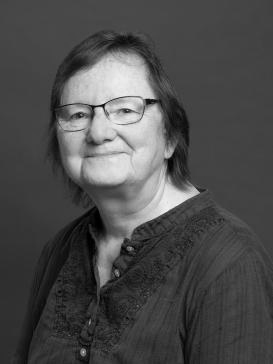Dr. Sonja Brentjes
Sonja Brentjes is a historian of science at the Max Planck Institute for the History of Science in Berlin, whose work focuses on the study of institutions, maps, translations, mathematical manuscripts, and the sciences in the arts in Islamicate societies between 800 and 1700. She also works on cross-cultural exchange of knowledge and historiographical questions. Her latest publications include:
(2017) Learning to write, read and speak Arabic outside of early modern universities,
(2016) Practicing history of mathematics in islamicate societies in 19th-century Germany and France.
(2016) The vocabulary of "Unbelief" in three biographical dictionaries and two historical chronicles of the 7th/13th and 8th/14th centuries.
(2016) Issues of best historiographical practice: Garcia da Orta’s Colóquios dos simples e drogas e cousas medicinais da India (Goa, 1563) and their conflicting interpretation.
(2016) Globalization of knowledge in the post-antique Mediterranean, 700-1500. ed. together with J. Renn, Brentjes, S., Edis, T., & Richter-Bernburg, L. (Eds.). (2016). 1001 distortions: how (not) to narrate history of science, medicine, and technology in non-western cultures.
Course Title: History of Science in Islamicate Societies
Course Description:
In this course, we will familiarize ourselves with different aspects of the history of science in Islamicate societies:
(1) historiography
(2) products and their properties
(3) scholars and their narratives
(4) disciplinary organization and their changes
(5) institutions and their knowledge spaces.
We will trace some of the major historiographical debates and their concepts since the 19th century such as innovation, achievement, translation movement, decline, science in the service of Islam, or marginalization.
We will ask which impact those debates and concepts have had on views held by the public in the countries of the participating students. Students will be invited to present different kinds of material on those topics from their homelands. We will discuss how those debates and concepts have shaped academic research until today.
We will compare different types of textual, pictorial, instrumental, and other material products used in the mathematical sciences, map making, geography, medicine and perhaps other fields of knowledge from different historical periods and regions. We will compare their formal and intellectual properties and try to determine major scholarly practices such argumentation, demonstration, exemplification, or organization of knowledge. On the basis of secondary sources, we will survey the content of some of the fields of knowledge.
We will read a few extracts from historical sources about scholars and their training and position in society and analyze a few types of narrations on scholarly lives and goals in the sciences. We will study literature on the classification of the sciences from different centuries and regions and discuss their similarities and differences.
At the end of the course, we return to one of the central historiographical questions since the 1970s - presence or absences of the sciences from the institutions of knowledge in various Islamicate societies. We will read influential secondary texts on this issue, pay attention to some art historical investigations, and analyze properties of those institutions on the basis of different primary sources.
Introductory Reading:
- Steve Livesey & Sonja Brentjes, Sciences in the Medieval Christian and Islamic Worlds, in: I. R. Morus, The Oxford Illustrated History of Science, 2017. 72-107, 412-413
- Sonja Brentjes & Robert Morrison, Sciences in Islamic societies (750-1800), in: The New Cambridge History of Islam, vol. IV, ed. by R. Irwin, Cambridge, 2010, 564-639.
- A.I. Sabra, The Appropriation and Subsequent Naturalization of Greek Science in Medieval Islam, in: History of Science 25, 1987, 223–43.
